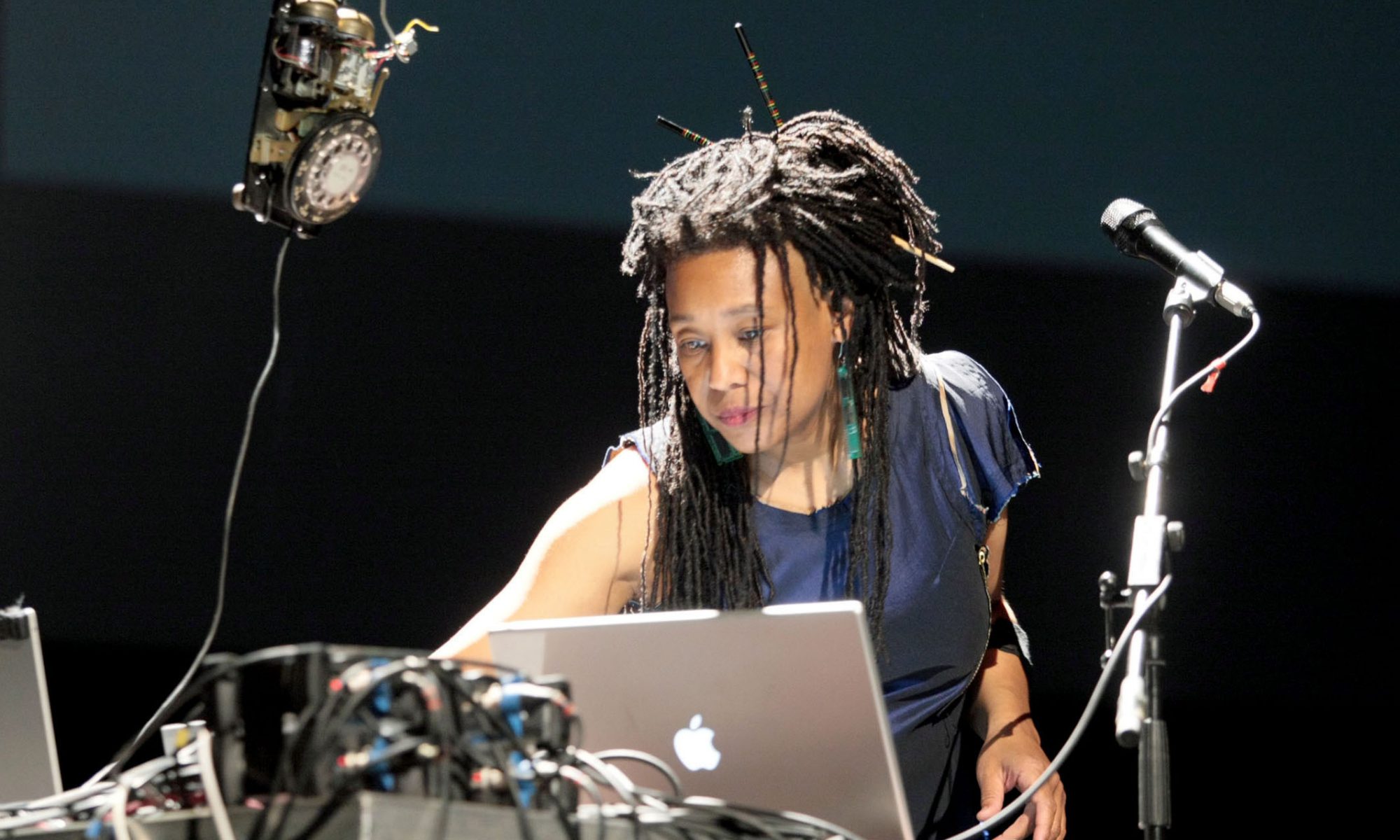Pamela Z is described as using extended technique sounds in her sound performances –
“unconventional, unorthodox, or non-traditional methods of singing […] to obtain unusual sounds.”
Her multimedia sound art is embroidered with many layers of vocals, instrumental sounds and digital sounds that she creates, reverbs, repeats, and mixes in real time. Her unique performances combine spoken word, classical vocal elements and visuals such as film and movement through digital means that together make quite futuristic compositions.
Pamela’s strong vocals result from her classical voice studies at University of Colorado Boulder. After earning her degree, she attempted to add digital delay and reverb to her classical voice performance in the early ‘80s, moving into an entirely different realm of vocal performance in experimental sound art. I am quite curious how she decided to move from something so traditional as classical voice, which influenced her opera-like tones, to an experimental and digitally-influenced sound.
She then added live looping to her compositions by looping her voice multiple times to make her performances more layered and textural. In our sound and video compositions, we used looping for both video and sound, but the small fragments that are looped in Pamela Z’s pieces give her performance more consistent texture than a 1.5 minute looping video in my project, for instance. This repetition and consistency is heard clearly in her piece “Geekspeak” and in many of the videos of the compilation we watched in class.
As I listened to “Geekspeak”, the tech language and words were directly connected to the content important to the technology nerds of today, making the title appropriate. I questioned whether this was labeled a song or sound piece, since the conversational theme between multiple speaking (instead of singing) reminded me of a podcast. The repetition of sounds and words in addition to the way in which words were said – sometimes staccato-like or put through a reverb system or even cut off in incomprehensible phrases – made me wonder how this piece would sound if I did not know English. Any language is just a bunch of sounds combined together so that they are comprehensible by someone who knows the language. But if I did not understand the language, would it sound more like music than a podcast?
The background digital sounds and spoken words provide a texture similar to instruments in a song. So, possibly, if the spoken words were strung together more like typical singing or if they were more broken apart and incomprehensible like instrument noises, Geekspeak would be very similar to a typical song or instrumental track — though, this diversion from what is accepted as a song and pushing the interaction between sound and technology through live performance is exactly what Pamela Z is most likely going for. Annabelle Woodward describes her sonic compositions well as
“fuse eerie, futuristic audio with spoken word and film” that creates a “dynamic multimedia experience”.


Excellent! To answer your question about how a classically trained singer can end up exploring extended vocal technique: in classical music schools, there is generally also a study of contemporary music, and a few singers, rather than pursuing opera or conventional song, will specialize in contemporary techniques. And there are music professors who teach these techniques. Good comment as to whether or not Geekspeak can be considered a “song.” Not really, since it does not involve lyrical singing, but rather uses what you would call “found sounds.” But there are “songs” of Pamela’s in which sings somewhat conventional melodies, but also extended vocal technique. I would put all these pieces in the “song” category, which can be viewed very broadly in a contemporary context.